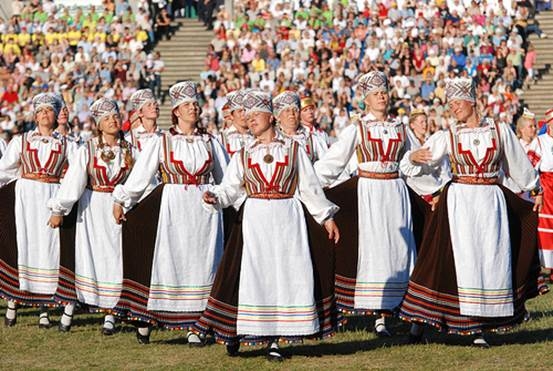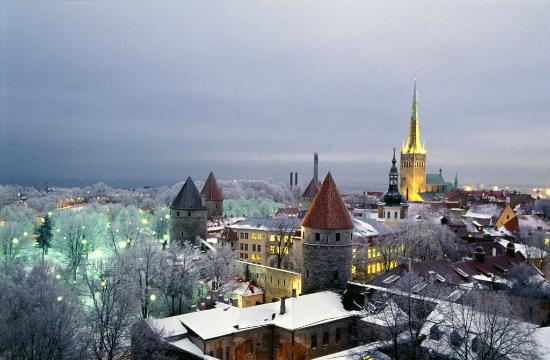Nu pierdeți cele mai bune locuri de muncă!
Abonează-te și săptămânal iți vom trimite un email cu ultimele locuri de muncă disponibile. Introdu adresa ta de email mai jos
On the banks of the Baltic Sea, lies Estonia, a country bordered by Russia, Latvia, and Sweden. Its population of 1.3 million makes it a relatively low population country, with 400,000 of the total population residing in the capital city of Tallinn, located in the northern region of Estonia. Though a former Soviet nation, Estonia has grown into its own right and its economy has garnered the nickname, “The Baltic Tiger.” Such rapid and successful growth is represented in the fact that the country has the lowest public debt in the entire European Union, a balanced budget, a competitive commercial banking sector and economical tax-rates.
Also known as “a pearl on the banks of the Baltic Sea”, the prominent Estonian economy supplies the opportunity for several internships in finance and business. In 2011 Estonia was actually named as one of Europe’s Culture Capitals, along with Turku, Finland, and there are internships can be found through cultural programs through local universities.
Although speaking Estonian is not a requirement given the international economic connections, but being able to speak multiple languages, such as French, German, Spanish are also additional bonuses when applying for internships in Estonia.
Internships through Organizations
Whether you are attempting to find an internship through a placement service or directly through your preferred organization, you will want to explore the entire range of training centers, enterprises, banks and business centers as well as technical research and science centers. The majority of internships that you will locate on the Internet will be in Tallinn as this a major hub of the country. Depending on what type of company or field you are interested in, you may be able to explore other regions of Estonia outside of the capital.
Given Estonia’s economic reputation, an internship within finance, banking and other business related fields may prove to be worthy and influential opportunities. One international organization that helps students get involved with financial internships is AIESEC, of which Estonia is the 72nd member country. AIESEC Estonia focuses greatly on exchange instead of external events, as well as pioneering the premiere Baltic Youth to Business forum.
There are also scientific companies who are interested in up and coming talent, so if you are interested in the sciences, ranging from lab technicians to engineers, Estonia may hold some unique prospects for you to develop your prowess in these disciplines. For example, Eesti Pank’s internship program aims to connect scientific research establishments and Estonian universities. Through their program, interns can explore what it’s like to be an analytical researcher under the guidance of an experience supervisor.
Estonia is also known for a successful culture of start-up companies, so if you consider yourself to be an entrepreneur or have interest in this field, choosing to pursue this avenue and you could be greatly rewarded when your start-up takes off.
If your internship is unpaid, Estonia offers a variety of part-time jobs that you can do on the aside, anything from baby-sitting and language tutoring to IT programming to retail shop positions, assuming you manage your time properly with your internship as your first priority.
Internships through Academic Institutions
If you are planning to intern through a University program, know that the majority of Estonian Universities are members of the Erasmus Exchange Programme for Higher Education. Included in this program is free tuition and a grant to fully cover travel and accommodations costs, leaving very minimal costs for students to afford.
The Exchange Programme is geared towards students interested in studying rather than interning, but applying to this program is a sensible method of establishing a network in Estonia and connecting with potential organizations that you would eventually like to intern with. Other university centers that can help direct you towards an appropriate internship include the Tallinn University of Technology Career Centre, the University of Tartu, Career and Psychological Counselling and Tallinn University Career Counselling.
Monash University in Melbourne, Australia has a program through their Masters of tourism degree that connects students to an internship through the Estonian Business School that encourages students to gain experience working with the Estonian Tourist Board as well as the Estonian Ministry of Economy Affairs. Another university internship can be found through the Universty of Tartu in their Centre for Baltic Studies. The internship offers students work-related experience in several departments such as local and central government, diplomatic missions and third sector organizations.
Cost of Living in Estonia
The cost of living in Estonia is relatives affordable, but it largely depends on what area you choose to live in, how you entertain yourself and how you get around. Accommodations usually start at about €100 per month for student residences, but a private flat can cost as much as €500 or more. Food on average will cost about €200-250 if you choose to eat in and cook, while public restaurants and pubs charge an average of €4-€12 per meal, but specials can be as low as €2. Transportation by public service is free to students and free of charge in Tallinn, but Tartu requires payment. There are monthly passes that you can purchase and if you are a student, a month will only cost €8.63, and a single ticket will be about €1. There are also taxis available but they charge a starting rate of €1.9 and each successive kilometer is €0.6.
Work Permits, Visas and Insurance
Requirements differ between EU citizens and Non-EU citizens. EU citizens must obtain a temporary right of residence in Estonia, which is granted for a period of 5 years, for details on this process visit the Estonian Police and Border Guard Board web page. However they are not required to obtain an additional work permit if they are interested in working, but be careful becausethe difference between whether you are a student participating in an internship or working in an internship is crucial to what documentation you will need to prepare. With regards to health insurance, EU citizens are entitled to the same welfare benefits as Estonia’s population, so just make sure to bring your EU health insurance card when you travel.
Non-EU citizens are required to obtain a temporary residence permit while affiliated with a student institution and instructions can be located at the Estonian Police and Border Guard Board web page. The temporary residence permit is valid for one year and must be renewed two months before the expiration of the permit. Your country of origin affects the documentation required of you, so make sure to check the Estonian Ministry of Foreign Affairs before departing your home country. If you have acquired a student residency permit, then Non-EU citizens are also permitted to work without a work permit.
It is highly advisable that you consult your internship host organization about what requirements and documentation are expected of you and what classifications you fall into. The majority of programs that offer internships to international applicants have a great deal of experience when it comes to work permits and temporary residency matters, so make sure to ask as many questions as it take for you to not get deported from Estonia!
Sign in to publish a comment




Be the first to comment on this post.